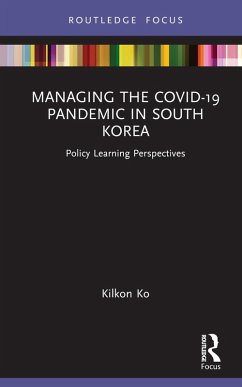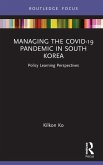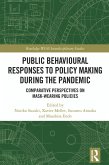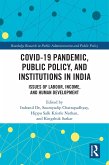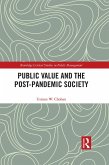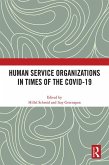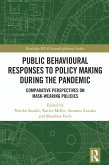Korea is known as a representative example of state-led economic development called the developmental state model. However, Korea's COVID-19 response emphasizes citizen-led efforts, the use of information and communication technology, and successful disease control through cooperation between the government and civil society. This book presents examples that demonstrate the effectiveness of disaster response based on democratic values, by enhancing the capacity of civil society through social interaction resulting from various models such as rational models, heuristics, cooperative governance, policy networks, and complex adaptive systems. Additionally, it argues that the lesson learned from Korea's COVID-19 experience is not that a strong state should control citizens' freedom to increase the effectiveness of disease control, but rather that sharing the awareness of the risk enables voluntary citizen responses and solidarity consciousness of civil society is essential.
The book is a useful reference for anyone interested in learning more about the value of actors in policy networks.
Dieser Download kann aus rechtlichen Gründen nur mit Rechnungsadresse in A, B, BG, CY, CZ, D, DK, EW, E, FIN, F, GR, HR, H, IRL, I, LT, L, LR, M, NL, PL, P, R, S, SLO, SK ausgeliefert werden.

